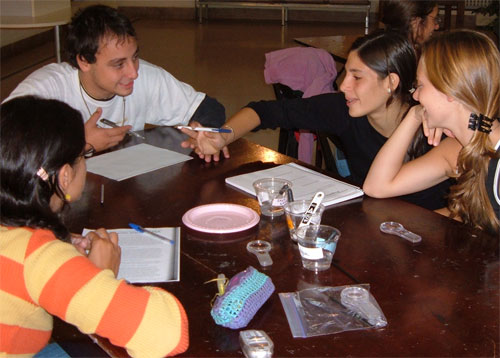
COMMUNICATING SCIENCE © 2011 the Regents of the University of California

This session is designed to explore how people learn best and to model how to develop lessons that support a variety of learning styles.
— Participants experience a series of learning stations, each using a different teaching approach to investigate the same topic. As they visit each station, the participants are challenged to be aware of their reactions and how each activity supported—or did not support—their individual learning experience.
— The group then discusses the advantages and disadvantages of particular approaches. This shared experience makes for a dynamic discussion about teaching approaches, as well as about the diversity in individual learning styles.
— The presenter introduces a research-based, instructional model known as the “Learning Cycle,” which focuses on ordering activities to match the way people naturally learn. This useful model breaks the learning process into five different phases that may each suggest particular types of teaching approaches. Although several versions of learning cycles are currently in use, the model presented in this session is based on a five-phase cycle: invitation, exploration, concept invention, application, and reflection.
— Finally, as participants experience an exemplar lesson based on this model, they learn how the model can be used to help provoke questions and enable students to integrate and apply new concepts and information.
Participants leave the session with a useful tool for planning and conducting educational activities.